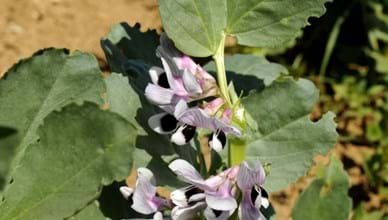Developing faba bean value chain (Lithuania)

With the recent development of agriculture, economic, efficient, and sustainable farming systems have been gaining increasing relevance, especially in the context of bioeconomics concept. Various stressful environmental factors that impact on agroecosystems and rising prices of energy resources and farm inputs (fuel, fertilizers, etc.) are increasingly affecting agricultural production costs. Including grain legumes into arable crop rotation systems can lead to a range of environmental effects (reduce use of N fertilisers, increasing soil organic carbon etc.) and increase the sustainability of the agro-ecosystems. Considering this, the questions related to the benefits of fababeans and other legumes in nowadays are very important. The fababeans have the potential to produce grains for food, feed and others biorefinings. Like peas and others legumes, fababeans are an important source of plants proteins.
The fababean is the second more cultivated grain legume in Lithuania. Farmers grow legumes, but less than cereals whose yields are less risky. Grain legumes have also a lower economic performance compared to other common crops such as rapeseed or winter wheat. A better legume performance can be obtained in a crop rotation context.
Only a small proportion of grains is consumed for feed and extensively processed for food. Fababean and pea are most often exported. Legume cultivation depends not only on farmers, but also on other stakeholders in value chains.
The case study will focus on the fababean value chain in Lithuania, using the expertise of the different actors throughout the entire value chain. The purpose of the case study is to assess weaknesses, opportunities, and challenges for the future.



